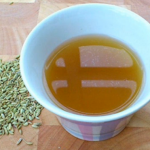Zucchini is a summer squash and generally tends to grow up to a meter in length. However, it is normally cultivated to half its size or even lesser. It is a hybrid form of cucumber. It belongs to the family Cucurbita pepo, along with some other squashes. Most forms of zucchini are light green or dark green in color. A hybrid known as golden zucchini is orange or deep yellow in color.Zucchini not only provides a unique texture and flavor to various dishes, but also has a variety of health benefits.
History of Zucchini
Squash seeds have been found in Mexican caves and these preserved seeds have dated back to nearly ten thousand years. Zucchini along with other squashes were widely harvested across the Americas and the Indians referred to the trio of corn, beans and squashes as the ‘three sisters’. It was Columbus that brought zucchini and other squashes to Europe. The vegetable was then spread to the rest of the world by Portuguese and Spanish explorers.
Zucchini is currently produced and consumed worldwide. United States is one of the largest producers of zucchini and other types of squashes.
Health benefits of Zucchini
- Zucchini has abundant quantities of dietary fiber. Hence, its inclusion in one’s diet can promote the process of digestion, inhibit overeating, regulate the levels of blood sugar and prevent constipation.
- Zucchini plays an important role in cancer prevention. The high fiber content in zucchini aids digestion and thus does not allow the carcinogenic toxins from inhabiting the colon. Additionally, zucchini has folate and Vitamin A and C which have potent antioxidant properties and thus aid the immune system in fighting off the free radicals, thereby reducing the risk to cancers.
- The high content of vitamin A and C in zucchini also prevent the oxidation of cholesterol in the blood vessels. This decreases the risk to atherosclerosis.
- The liver produces bile acids from cholesterol for the digestion of fat. The fibers present in zucchini bind to these bile acids and curb their ability to absorb fat. This causes the liver to make more bile acids by using more cholesterol. Thus zucchini aids in lowering the cholesterol levels.
- Antioxidant agents such as vitamin A and C, act in combination with copper present in zucchini, to have anti-inflammatory effects on the body. This significantly reduces the vulnerability to developing hyper-inflammatory conditions such as osteoarthritis, asthma and rheumatoid.
- Research indicates that the many nutrients present in zucchini help to alleviate the symptoms of BOH or benign prostatic hypertrophy, which is a condition that results in the enlargement of the prostate gland leading to sexual dysfunctions in men and urination complications.
- Zucchini has potassium and magnesium which promote the health of the circulatory system and lower the blood pressure. This in turn prevents the risk to heart diseases, stroke, etc.
- Zucchini is rich in manganese which participates in a number of functions such as production of sex hormones and metabolism of carbohydrates and proteins. It is necessary for the production of an amino acid known as proline, which promotes collagen formation and thus aids wound healing and healthier skin. Also, it acts as a catalyst in the synthesis of cholesterol and fatty acids.
Side effects
- Lutein, which is present in zucchini, may be harmful for breast feeding and pregnant women, when consumed excessively.
Nutritional information
100 grams of Zucchini will have:
- Calories: 15
- Folate: 24 mcg
- Vitamin A: 115 mcg
- Potassium: 280 mg
Zucchini Pictures





